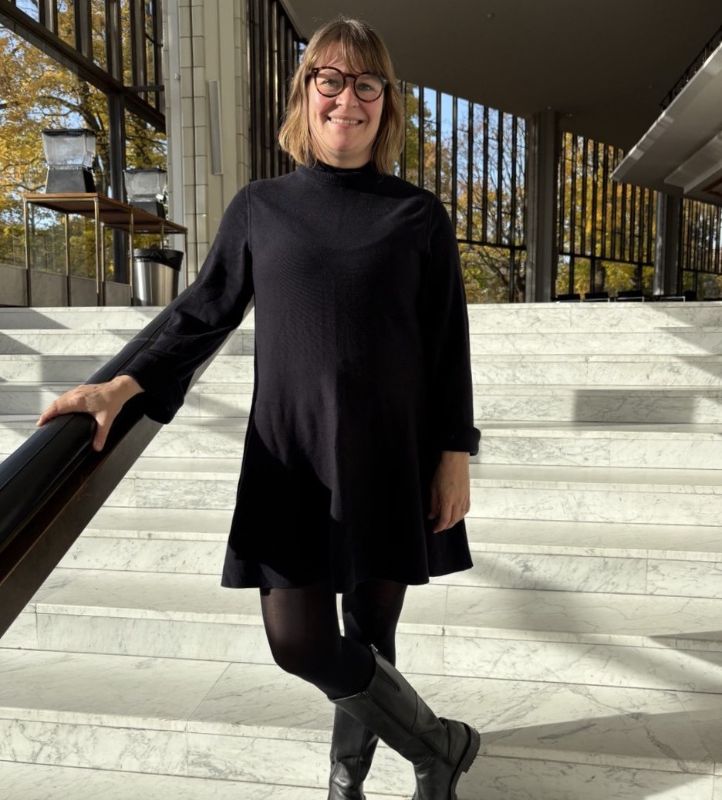Dramaturge
"A dramaturge is required to understand drama text and the structure of a play, and they need to be able to interpret broader textual wholes. It is important to be familiar with genres and contexts. Good collaboration skills and the ability to engage in open and constructive discussion are also important."

- Sanna Niemeläinen
- Dramaturge at Helsinki City Theatre.
- Master of Arts in Theatre Research from the University of Helsinki.
- 15 years of work experience in the field.
Briefly explain what you do for a living.
I'm a dramaturge at Helsinki City Theatre. I look for new plays for the theatre's repertoire together with the other two dramaturges of the theatre. This I do by reading plays and novels, meeting with authors, and discussing ideas, topics and interests. I keep up with what is being done in other theatres around the world and read through the latest foreign plays. The work also includes seeing performances by other theatres in Finland and, if possible, abroad.
In addition to repertoire planning, my work as a dramaturge involves working with screenwriters and directors. This means supporting the playwright by reading and commenting on scripts at various stages of the process. During production, I help the director with the script and overall dramaturgy. I also attend rehearsals and discuss what I have seen with the director.
How have you ended up in the profession of your choice?
My interest in theatre led to studying theatre research. I originally joined Helsinki City Theatre as an academic trainee. I've held various positions here before becoming a dramaturge in 2015.
Describe your typical working day or week.
My typical working week consists of two meetings with the theatre manager and the other dramaturges regarding the theatre's future repertoire. I typically also read through a script of a new play and give feedback on it and discuss it with the playwright, read texts or review a translation and discuss it with the translator. I also attend production design meetings, and sometimes attend read-throughs or run-throughs of new plays.
What kind of work environment or working hours do you have?
I work in the main theatre building. I mainly work normal office hours from my office, but sometimes also evenings during rehearsals.
What kind of competence or qualities are required in the profession?
A dramaturge is required to understand drama text and the structure of a play, and they need to be able to interpret broader textual wholes. It is important to be familiar with genres and contexts. Good collaboration skills and the ability to engage in open and constructive discussion are also important. In addition, dramaturges must have extensive general knowledge and good language skills. Dramaturges must also be interested in societal themes and current affairs.
What is the best thing about your profession?
What I like best about my work is that I get to work with interesting people and see how the performance comes to life. I also like being able to continuously develop my own professional skills.
What are the downsides of the profession or what seems challenging?
Working in a theatre is emotionally intensive, in both the good and the bad way. Theatre is all about teamwork, and both positive and negative energy spreads easily.
What would you tell a person considering the profession of a dramaturge?
Working as a dramaturge suits people who love working with texts, reading, writing and theatre, but who do not feel the need to be in the spotlight. At best, the work is very interesting and rewarding.
How do you see the future of your profession?
I believe in the significance of performance art, because people have been telling stories and coming together since the prehistoric era. There will certainly continue to be a need to find relevant topics and texts for performances, and for me, the future of my profession looks bright.
